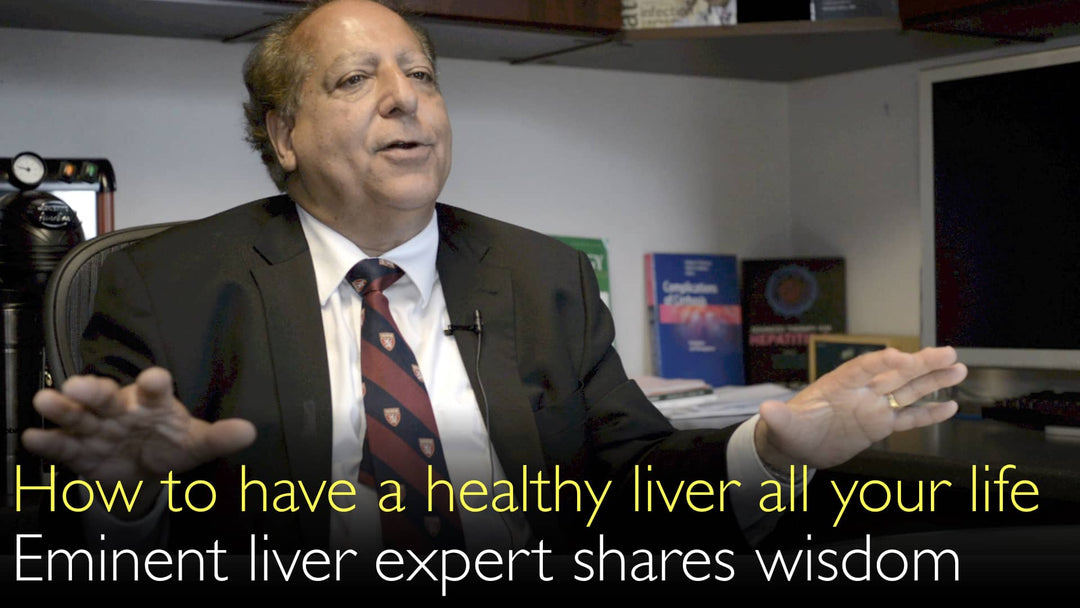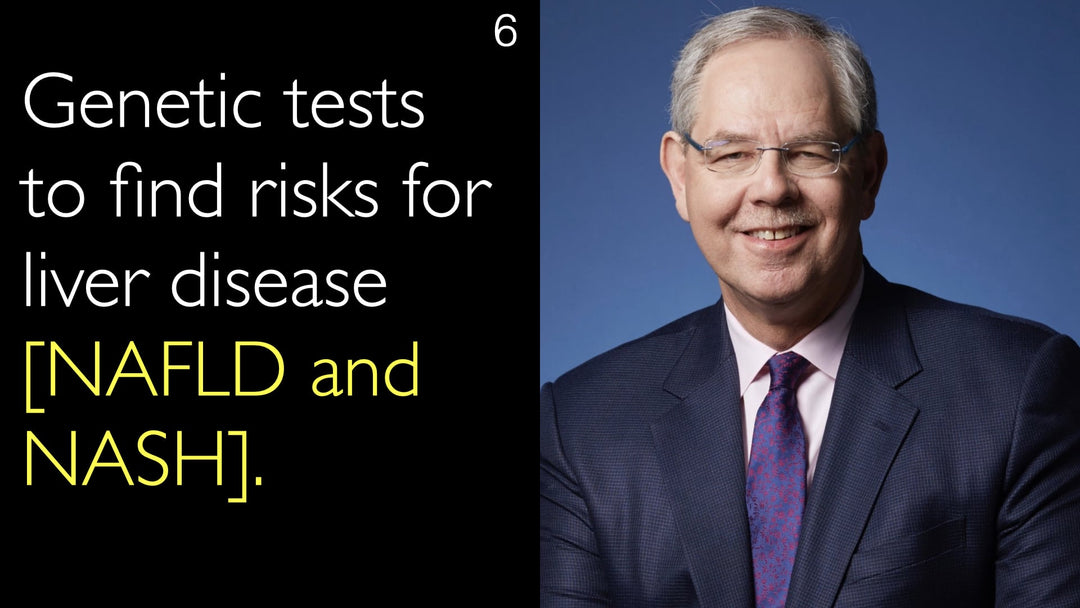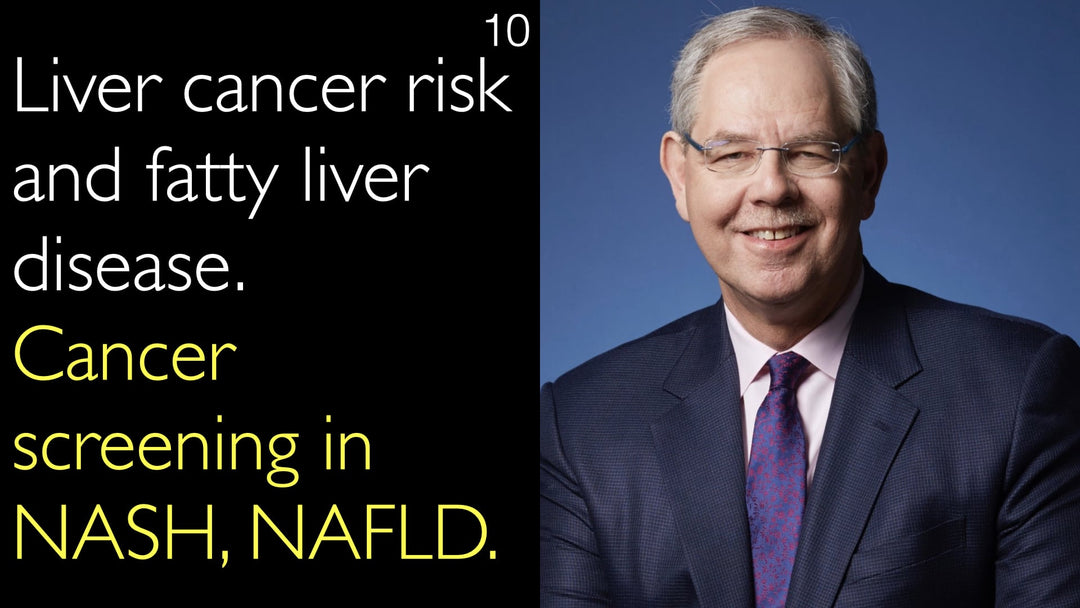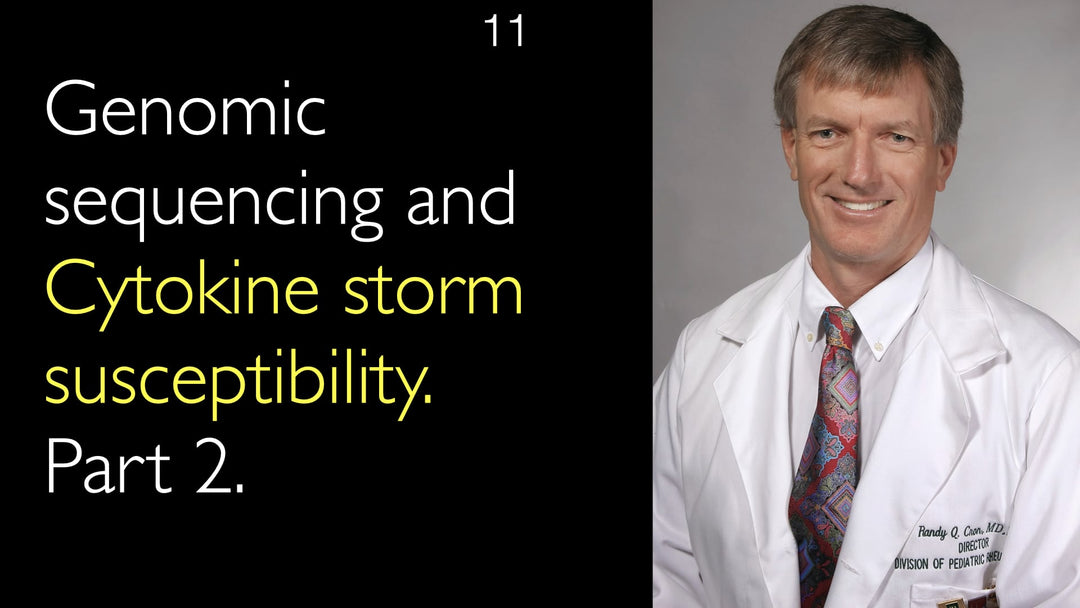Leading expert in liver diseases, Dr. Sanjiv Chopra, MD, explains how to maintain lifelong liver health through vaccination, weight management, and lifestyle choices. He details the critical importance of the Hepatitis A and B vaccines as powerful preventative tools, highlighting their role in preventing severe liver damage and even liver cancer. Dr. Sanjiv Chopra, MD, emphasizes that avoiding excessive alcohol and maintaining an ideal body weight are paramount to preventing alcoholic liver disease and the burgeoning epidemic of non-alcoholic fatty liver disease (NAFLD), which now affects tens of millions and is a leading cause for liver transplantation.
Essential Strategies for Lifelong Liver Health and Disease Prevention
Jump To Section
- Vaccines for Liver Protection
- Avoiding Alcohol Excess
- Maintaining Ideal Body Weight
- Understanding Non-Alcoholic Fatty Liver
- The Role of Exercise and Nutrition
- Preventative Education for Future Generations
Vaccines for Liver Protection
Dr. Sanjiv Chopra, MD, identifies vaccination as a cornerstone of liver disease prevention. He strongly recommends two specific vaccines: Hepatitis A and Hepatitis B. The Hepatitis A vaccine protects against a virus that, while not causing chronic disease, can lead to severe debilitation and, in rare cases, fulminant liver failure requiring transplantation. Dr. Sanjiv Chopra, MD, notes that travelers, food handlers, and other high-risk groups should be vaccinated.
The Hepatitis B vaccine is described by Dr. Sanjiv Chopra, MD, as the "first anti-cancer vaccine." He cites seminal studies from Taiwan where universal childhood vaccination reduced the prevalence of chronic Hepatitis B infection from 15-20% to 1.5% and caused a dramatic 75% reduction in childhood liver cancer mortality. This vaccine is widely available and is a critical tool for global liver health.
Avoiding Alcohol Excess
Avoiding excessive alcohol consumption is a fundamental strategy for protecting the liver. Dr. Sanjiv Chopra, MD, explains that alcohol is a direct hepatotoxin that can cause alcoholic hepatitis and lead to cirrhosis. Liver injury from alcohol is often silent in its early stages, only presenting symptoms after significant, sometimes irreversible, damage has occurred.
For individuals with any form of pre-existing chronic liver condition, alcohol can be particularly dangerous. Dr. Sanjiv Chopra, MD, emphasizes that moderation or abstinence is essential for lifelong liver health and to prevent the progression of liver disease to its advanced stages.
Maintaining Ideal Body Weight
Maintaining a body weight as close to ideal as possible is crucial for liver health. Dr. Sanjiv Chopra, MD, directly links obesity to a host of medical problems, including more than 20 different cancers, diabetes, metabolic syndrome, and hypertension. Crucially, obesity is the primary driver of non-alcoholic fatty liver disease (NAFLD).
Dr. Sanjiv Chopra, MD, states that the liver disease stemming from obesity now represents a massive public health challenge. Achieving and maintaining a healthy weight through diet and exercise is one of the most effective actions an individual can take to prevent liver disease.
Understanding Non-Alcoholic Fatty Liver
Non-alcoholic fatty liver disease (NAFLD) is a severe condition that mirrors alcohol-induced liver damage but occurs in people who do not drink excessively. During his discussion with Dr. Anton Titov, MD, Dr. Sanjiv Chopra, MD, revealed the staggering scale of NAFLD, which afflicts an estimated 40 to 70 million Americans.
Dr. Chopra provides critical data, noting that while Hepatitis C affects about 4 million Americans, NAFLD impacts ten times as many people with liver cirrhosis. It is currently the second leading indicator for liver transplantation in the United States, and projections indicate it will become the dominant reason for transplant within the next decade.
The Role of Exercise and Nutrition
Regular exercise and proper nutrition are vital components of a liver-healthy lifestyle. Dr. Sanjiv Chopra, MD, stresses that physical activity helps combat obesity, improve insulin sensitivity, and reduce liver fat. A balanced diet low in processed sugars and unhealthy fats is equally important in preventing the development and progression of NAFLD.
These lifestyle interventions work synergistically with other preventative measures. As Dr. Chopra explained to Dr. Anton Titov, MD, integrating consistent exercise and healthy eating habits is a powerful defense against the metabolic drivers of modern liver disease.
Preventative Education for Future Generations
Dr. Sanjiv Chopra, MD, advocates for a proactive, educational approach to liver health that targets youth. He believes health custodians must work with organizations like the American Liver Foundation to bring essential information on exercise, nutrition, and vaccination to high schools and middle schools.
Educating young people about the dangers of excessive alcohol and the importance of maintaining a healthy weight is an investment in the future. Dr. Chopra concludes that empowering the next generation with this knowledge is key to curbing the burgeoning epidemic of preventable liver disease.
Full Transcript
Dr. Anton Titov, MD: Liver injury is often silent until it shows as cirrhosis or cancer. Touted as "hepatoprotectors" or "liver protection," these "substances" are nothing but marketing and often are toxic to the liver. Renowned liver diseases expert from Boston on how to ensure healthy liver. What can people do to protect against liver disease?
Dr. Anton Titov, MD: You are a renowned liver expert, a Professor of Medicine at Harvard Medical School. How can people keep their liver healthy?
Dr. Sanjiv Chopra, MD: Yes, that is a great question! Fortunately, there are two vaccines to protect against two forms of viral hepatitis. Hepatitis A does not lead to chronic liver disease and does not lead to cirrhosis of the liver, but it can be severe. It can lead to a lot of debility.
On rare occasions, Hepatitis A can be fulminant. This means very severe, even leading to liver failure and the need for a liver transplant. We have a very effective vaccine against Hepatitis A.
People who travel extensively, men having sex with men, people working with non-human primates and chimpanzees either in the lab or the zoo, their food handlers—there are many indications for Hepatitis A vaccine. That is a very effective vaccine.
The other vaccine that we have is the Hepatitis B vaccine. Seminal studies were done in Taiwan many years ago. In Taiwan, the prevalence of chronic Hepatitis B infection was 15% in the general population.
Two decades of universal vaccination with Hepatitis B in childhood led to a decrease in the prevalence from 15–20% to 1.5%. But most dramatically, there was a reduction of 75% in childhood hepatoma, cancer of the liver, mortality.
This is truly the first anti-cancer vaccine. This vaccine is FDA-approved and available in many countries. The Bill and Melinda Gates Foundation have helped many poor countries get the vaccine at a nominal rate or even for free.
One thing to protect against liver disease is to get vaccinated for Hepatitis A and B. Every chronic patient, every patient with chronic liver disease, we recommend should be tested for Hepatitis A and B. If they don't have protective antibodies, they should be vaccinated.
Sometimes they are unfortunate to get Hepatitis A or B superimposed on their other chronic liver disease; it can be fatal. It can be fulminant.
The other thing that is very important to protect against liver disease is to not drink alcohol in excess. That can lead to alcoholic hepatitis and cirrhosis. One has to be as close to ideal body weight as possible.
Because obesity is linked to 20 different cancers. Obesity is linked also to diabetes, metabolic syndrome, hypertension, and liver disease. I mentioned non-alcoholic fatty liver disease.
It is a disease we call non-alcoholic fatty liver disease because under the microscope it looks just like alcoholic liver disease. But these are patients who are not drinking alcohol. They have diabetes, they have Type 2 diabetes and obesity.
It afflicts 40 to 70 million Americans. We think that about 5 million are or will become cirrhotic. Hepatitis C afflicts 4 million at most in the United States. Half a million patients will become cirrhotic or are cirrhotic.
From NAFLD, 10 times as many people develop liver cirrhosis. It is now the second leading indicator for liver transplantation in our country. The estimate is that in the next 10 years, NAFLD will become the dominant indication for liver transplantation.
We need to do a better job. All of us who are custodians of health, who are passionate about this, can work with the American Liver Foundation or other societies. Go to high schools and middle schools and talk to the young people about the importance of exercise, importance of nutrition, not drinking alcohol in excess, getting vaccinated with the right vaccines.
Exercising is crucial. Doing all those things to prevent this burgeoning epidemic. We need to get children involved. They are the future leaders not only in the health sciences, but in all the fields known to man.







